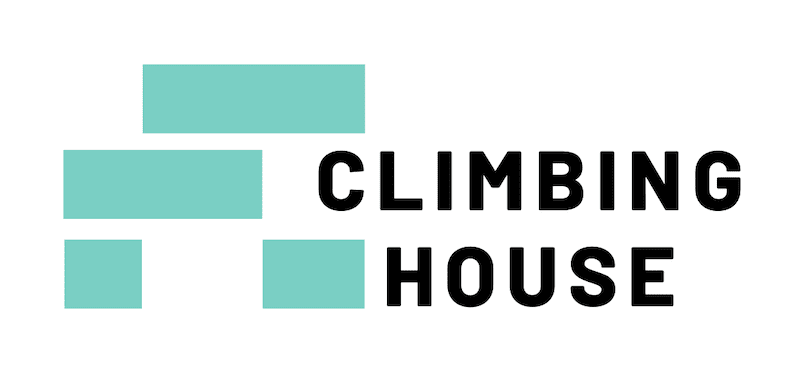The Best Climbing Shoe Brands (2024 Guide)
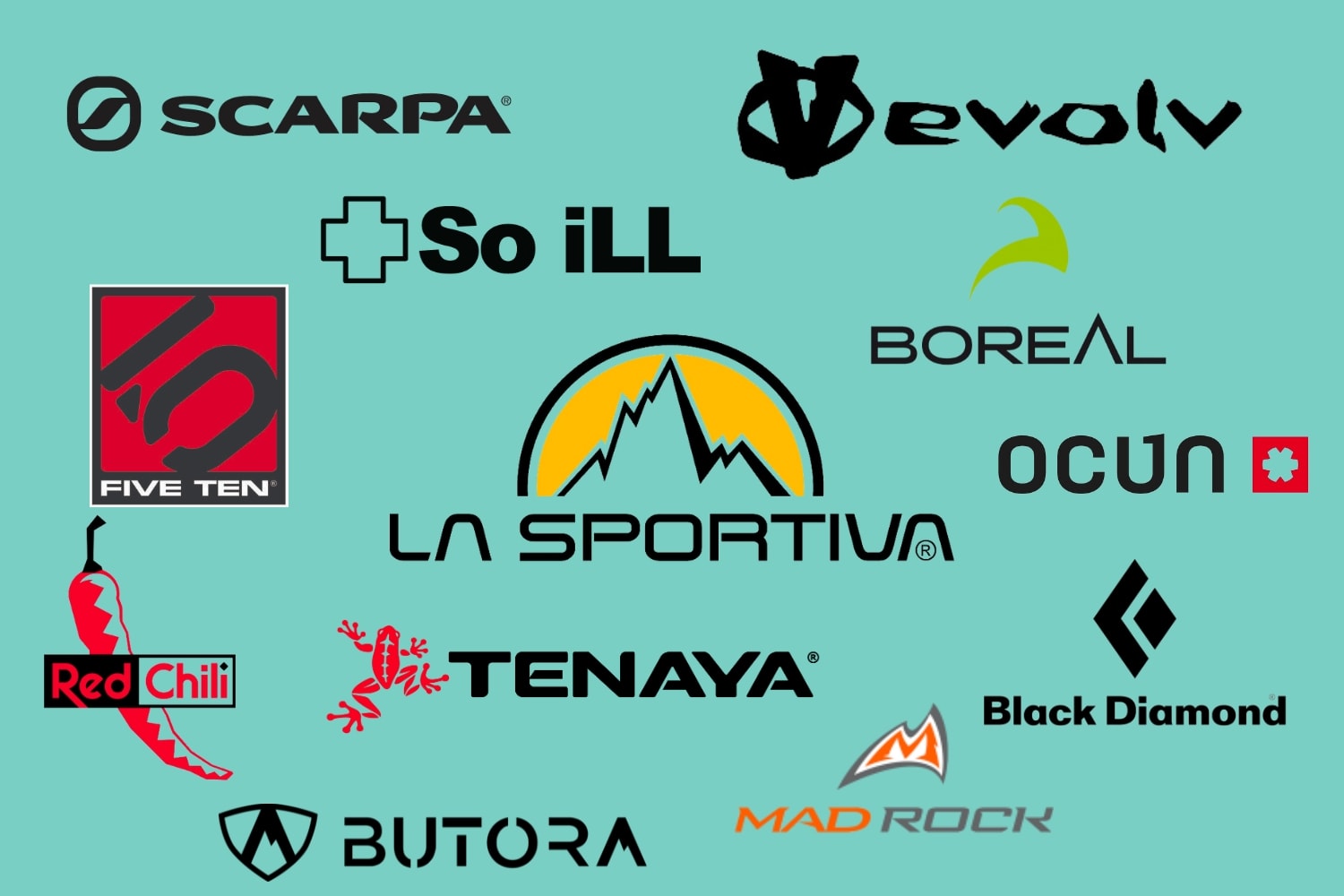
Modern climbing shoes have contributed tremendously to the rise of climbing as a sport, with athletes pushing the limits of what was once deemed impossible. For example, could Adam Ondra send Silence, the world’s first 9c route, without his La Sportiva Solution and Miura shoes (that’s right, he used one model on each foot)?
However, the professionalization and popularization of climbing have led to the emergence of many climbing shoe brands, each proposing a dozen models.
Of course, we all know La Sportiva, the undisputed leader in the category, hailing from Italy, but what about other brands? Which is best for you based on your climbing discipline, preferences, and ethical values?
This is what we are going to go over in this overview of the rock climbing shoe market worldwide.
The Origins of Modern Climbing Shoes
In the early days of rock climbing, climbers used the same heavy-soled, cleated mountaineering boots as alpinists. Granted, most rock climbers were also mountaineers. However, as you can imagine, it severely limited capabilities on harder technical routes.
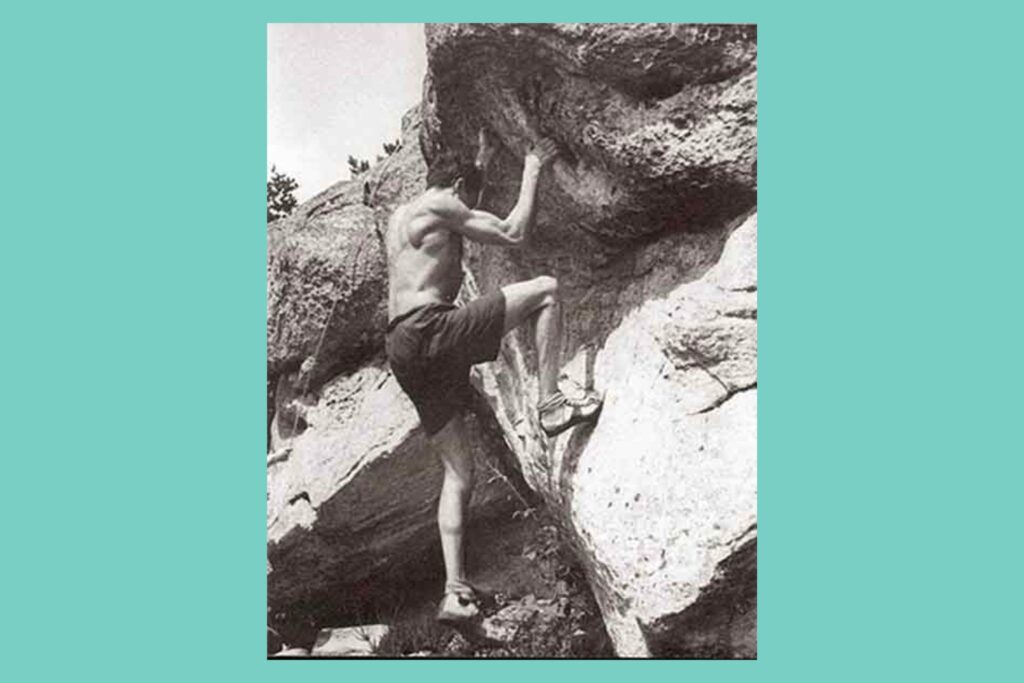
Things changed in the 1950s with Pierre Allain. The French rock climber combined hard canvas boots with a rubber sole; the rest is history. The first modern rock climbing shoes were born. Originally named “PA,” they were rebranded to “EB” boots after Edmond Bourdonneau purchased Pierre’s company (1).
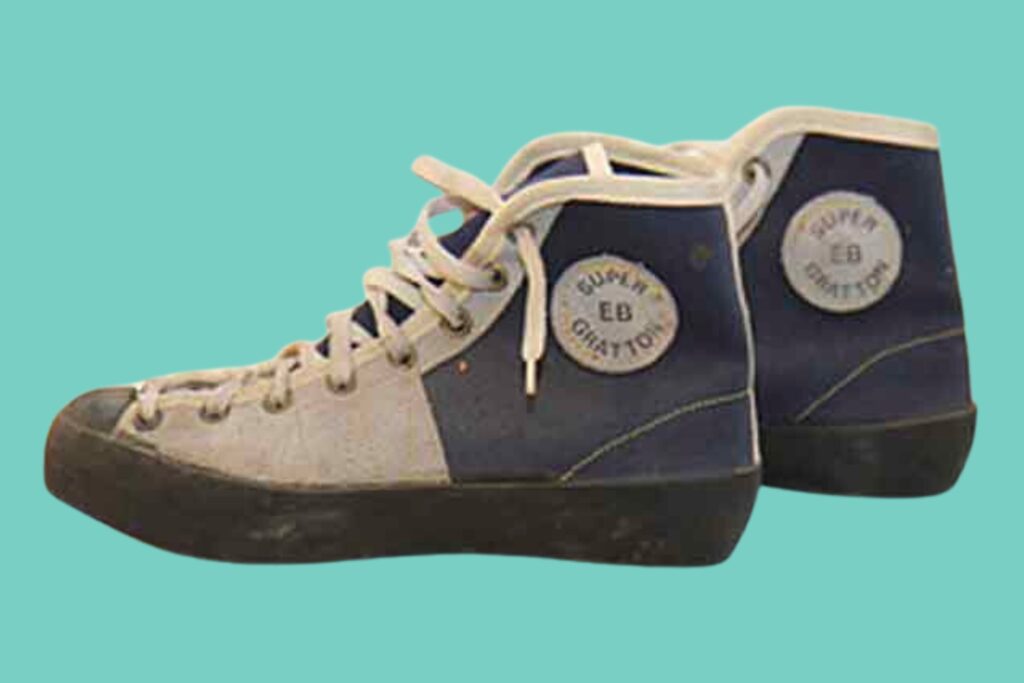
The World’s Climbing Shoe Market
With the climbing gear market expected to reach $2.7 Billion by 2031 (2) (and a large chunk coming from rock shoes), historical climbing brands are doubling down on their efforts to secure their position while new brands are emerging to challenge the status quo and offer new products.
Unfortunately, with the climate crisis dawning upon us, all we can hope is that the climbing industry won’t embrace the same trends as running, with new versions of each model being released every year, leading to more and more waste (creating and manufacturing a new model and bringing it to the market is resource-heavy and can lead to unsold inventory that may eventually be destroyed (3)).
Luckily, climbing shoes have one thing going for them: they can be resoled (sometimes up to three times), reducing their environmental impact slightly. Nonetheless, we’re at a stage where we need a clear commitment from manufacturers toward carbon neutrality.
With this in mind, let’s go over all the biggest climbing shoe brands in the world, taking a critical look at the sustainability and animal-friendliness of their models.
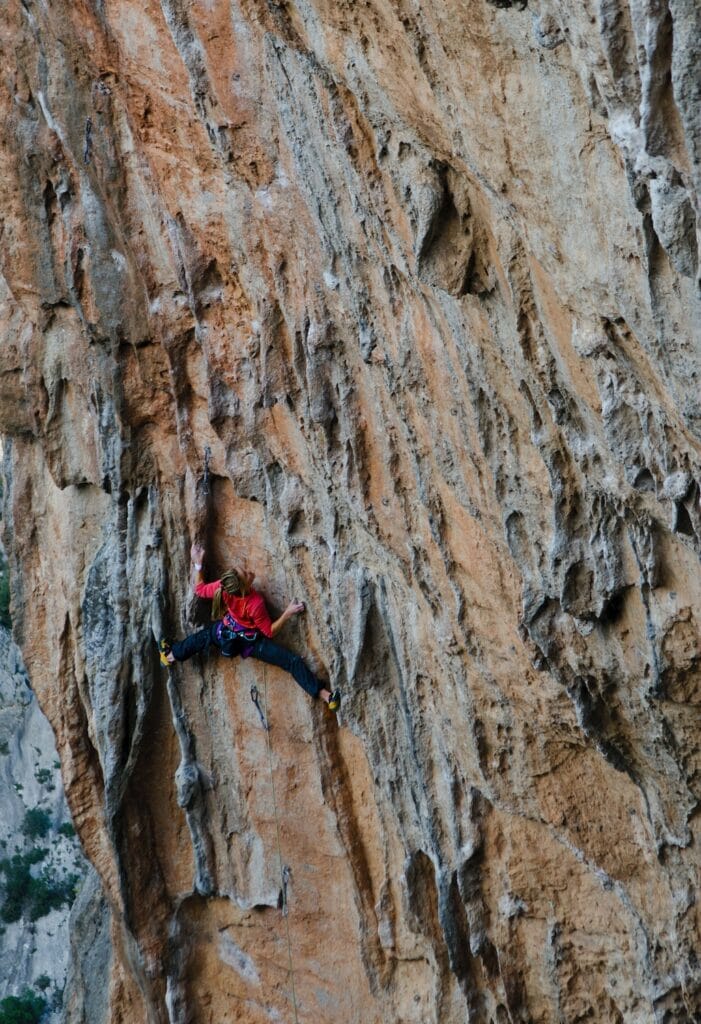
Overview of the Climbing Shoe Companies
Comparison Table
| Brand | Headquarters | Production | Sustainability | Animal welfare | Notable Climbers |
|---|---|---|---|---|---|
La Sportiva | Italy | Italy (60%), China and Vietnam | ★★★★ | ★★ | Adam Ondra |
Scarpa | Italy | Europe | ★★★ | ★★★ | Alex Puccio |
Evolv | United States, Italy | South Korea | ★★ | ★★★★ | Daniel Woods |
Tenaya | Spain | Spain | ★★ | ★★★★ | Chris Sharma, Alexander Megos |
Ocún | Czech Republic | Czech Republic | ★ | ★★★★ | Jernej Kruder |
Boreal | Spain | Spain | ★★ | ★★★ | – |
Five Ten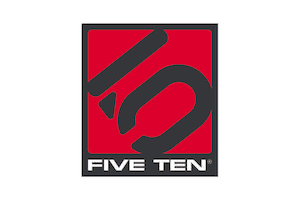 | Germany, United States | Asia | ★★ | ★★ | Janja Garnbret |
Butora | South Korea | South Korea | ★★ | ★★ | Megan Gallagher |
So iLL | United States | United States | ★★ | ★★★★★ | Jason Momoa |
Black Diamond | United States | China | ★★ | ★★ | Natalia Grossman |
La Sportiva
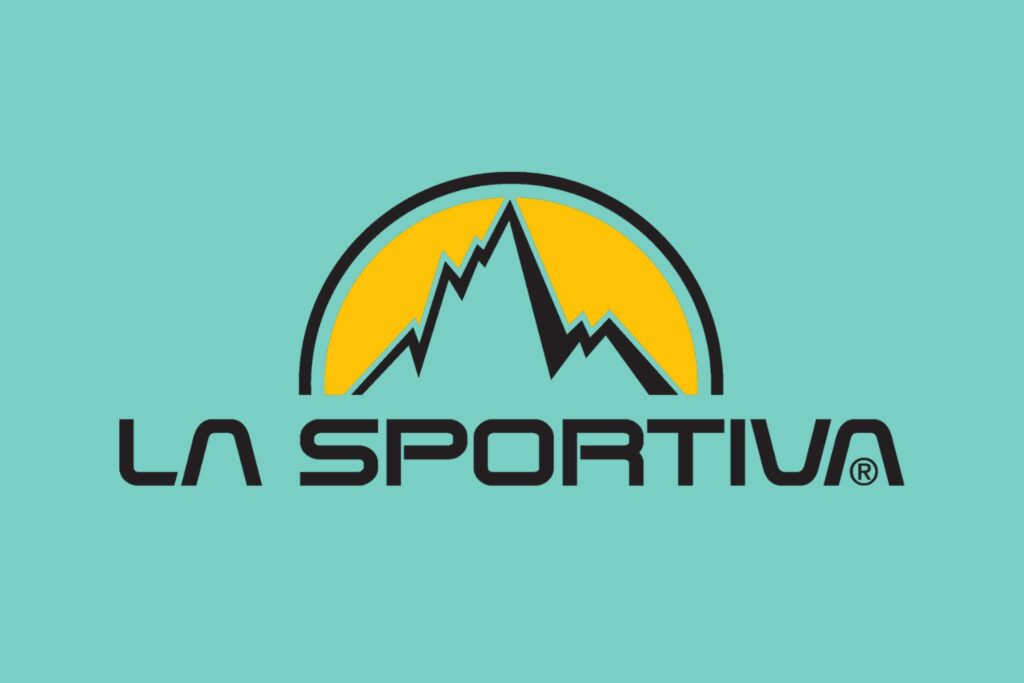
Founded in 1928 in Italy, La Sportiva is a very successful global brand that remained humble and dedicated to serving climbers worldwide. They are still headquartered in the Dolomites to this day and manufacture some of the most popular climbing shoes.
Their first big hit was the Mythos in 1991. In 2017, they released a new ECO version of this iconic model with “95% reduced environmental impact or recycled materials”.
La Sportiva offers a large collection for all levels. We’ve already mentioned that Adam Ondra especially enjoyed the Miura and the Solution; another popular one is the TC Pro, developed for Tommy Caldwell for its epic Dawn Wall ascent with Kevin Jorgeson and later sported by free solo legend Alex Honnold.
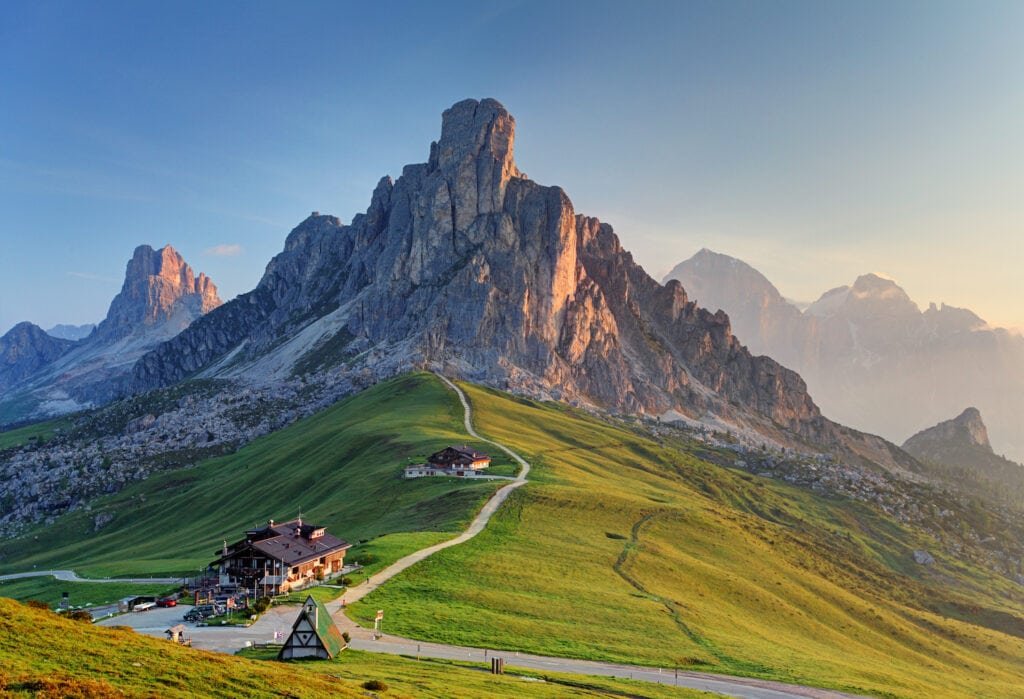
Overall, La Sportiva looks sincere and committed to reducing the carbon footprint of its production. For example, over half of their products meet bluesign’s criteria, one of fashion’s biggest sustainability certifications (4).
Also, La Sportiva manufactures most of its products in Italy (60 %) and the rest in China and Vietnam (28 and 12%, respectively).
The only potential criticism toward La Sportiva would be their reliance on animal products like leather for many climbing shoes. However, the brand is making efforts with synthetic shoes. For example, they recently released a vegan version of their popular Skwama and the GeckoGym Vegan, a good all-rounder shoe for gym climbing.
Scarpa
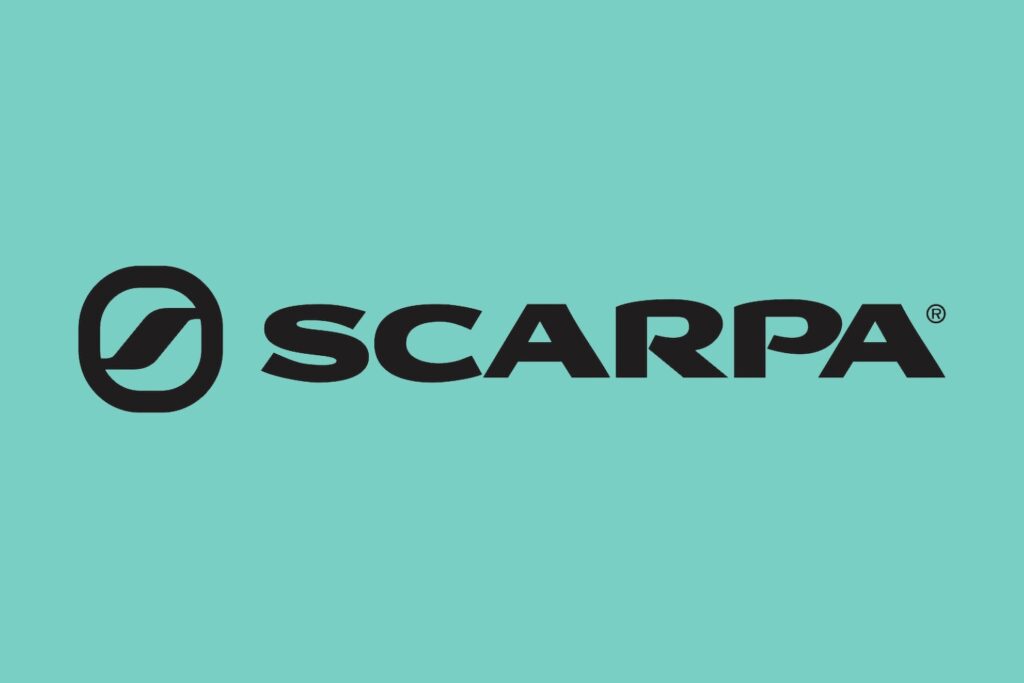
Also born in the Dolomite mountains in Italy, Scarpa is another very reputed brand in mountaineering. The family-owned business got into climbing shoes a bit later than La Sportiva, but it has quickly developed a very impressive collection with great models like the Drago and the Instinct VS.
Unlike La Sportiva, which produces a detailed report of its environmental and societal efforts, it’s a bit harder to assess the extent of Scarpa’s sustainability practices despite their public Green Manifesto (5). However, they do have some good things going:
- 90% of its manufacturing and supply is in Europe, with 60% in Italy (100% for its mountaineering line).
- Integrating sustainable materials as part of their products like Pebax Rnew, Evolo sustainable suede, and Greenline renewable raw materials. However, the part of sustainable materials in Scarpa climbing shoes is unknown, except for specific series like the Maestrale ski boot.
- Scarpa offers a few 100% vegan models like the Reflex V and Veloce.
Evolv

Born out of Brian Chung’s garage in the US in 2003 à la Microsoft, Evolv quickly established itself as one of the leading climbing shoe brands in the world.
Together with Chris Sharma, one of the most emblematic modern climbers, they released the Evolv Shaman, aggressive shoes with the perfect blend of comfort and performance thanks to the company’s proprietary knuckle box and love bump technologies. Sharma would later moved on to Tenaya, but the Shaman remains a classic today.
More recently, the brand has partnered with new high-profile athletes like Daniel Woods, Ashima Shiraishi, Kai Lightner, and Colin Duffy.
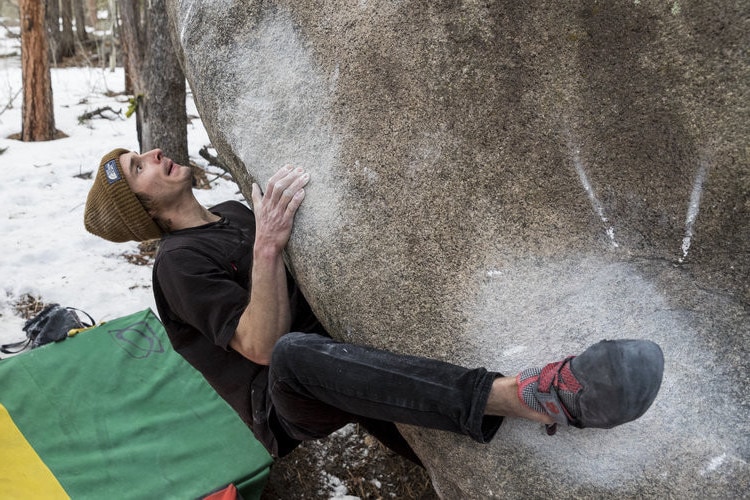
Evolv was one of the first companies to embrace veganism for its climbing shoes, with many models using animal-free synthetic materials.
The company was acquired by the Oberalp Group (6), a family business based in the Dolomites in Italy that also owns Salewa and Wild Country. The company produces a sustainability report (7) that highlights many corporate social responsibility initiatives like recycling, use of hemp, upcycling, and reducing the use of single-use plastics among others. However, it’s difficult to get an idea of the actual impact of all the efforts detailed in this huge report (134 pages). One phrase about the group’s carbon footprint is very telling:
Our study showed that over 80% of our impact is actually related to our production. However, we don’t own any of our production – it is all outsourced, except for our skins production in Switzerland.
This is probably why Good On You has rated Salewa (8) as “Not good enough.”
To conclude on a positive note, Evolv has been instrumental to the development of adaptive climbing, with two Evolv athletes starting a US paraclimbing program and being the first to represent the country in an international competition, inspiring many disabled climbers to do the same.
Tenaya
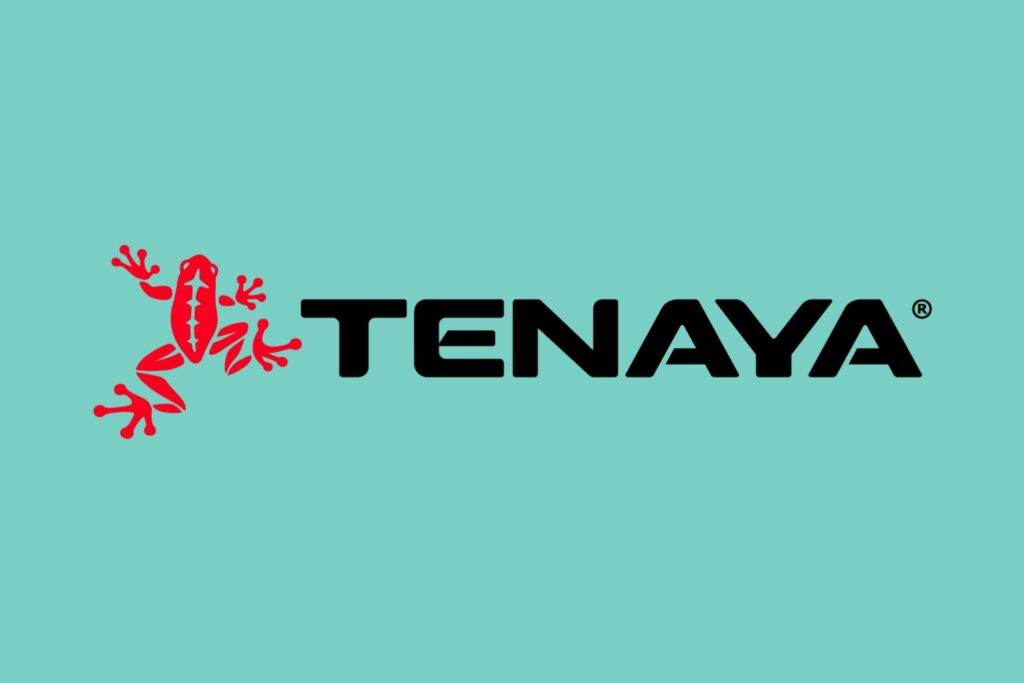
The Spanish company was founded by Jose Luis Garcia Gallego, a proficient climber with many first ascents on El Capitán, Fitz Roy, and the Andes.
More than twenty years later, Tenaya has kept its entire production in Spain and won the support of Alexander Megos to establish itself as one of the most respected climbing shoe brands worldwide.
Remember when Alexander Megos onsighted the first 9a/5.14d in rock climbing history? He wore the Tenaya Oasi, one of the best vegan aggressive climbing shoes.
Regarding sustainability, Tenaya works with the Global Recycle Standard (GRS) to integrate recycled materials (rubber, organic cotton, and plastic) in its manufacturing process (9). Unfortunately, like for many brands, the exact extent of these efforts is unclear.
Ocún

Founded in the 1980s as Rock Pillar, Ocún (Czech for Autumn crocus) is a versatile rock-climbing company that started by making harnesses before applying their craftsmanship to climbing shoes, crack climbing gloves, crash pads, and even ropes and carabiners.
Most Ocun rock climbing shoes are vegan, including its popular Ozone, Bullit, and Advancer. However, they don’t share much about their sustainability practices. We could only find a very generic and underwhelming statement on their site (10): “we behave in such a manner, which ensures that the production processes used by our company are friendly to the environment and the health of our employees.”
Boreal

We mentioned the PA and EB climbing shoes as pioneers of the category. Well, the Boreal Firé and its sticky rubber sole also revolutionized the history of climbing shoes in 1982.
Headquartered in Villena, Spain, Boreal is a small business with a long tradition of crafting hiking boots and climbing shoes. If you live in the United States, you may not have heard of it, but Boreal is very popular in Europe. You’re unlikely to miss their shoes if you ever climb in Spain or France.
Surprisingly, Boreal rock climbing shoes are very affordable (even their downturned shoes), despite being mostly handmade.
However, we couldn’t find much information about Boreal sustainability practices. It doesn’t mean their products are unsustainable: 100% of their production is in Spain (11), meaning less carbon emission from their supply chain than companies with factories in Asia.
With ten vegan shoes out of a total of 22 (45%), Boreal does quite well when it comes to fighting animal cruelty.
Five Ten
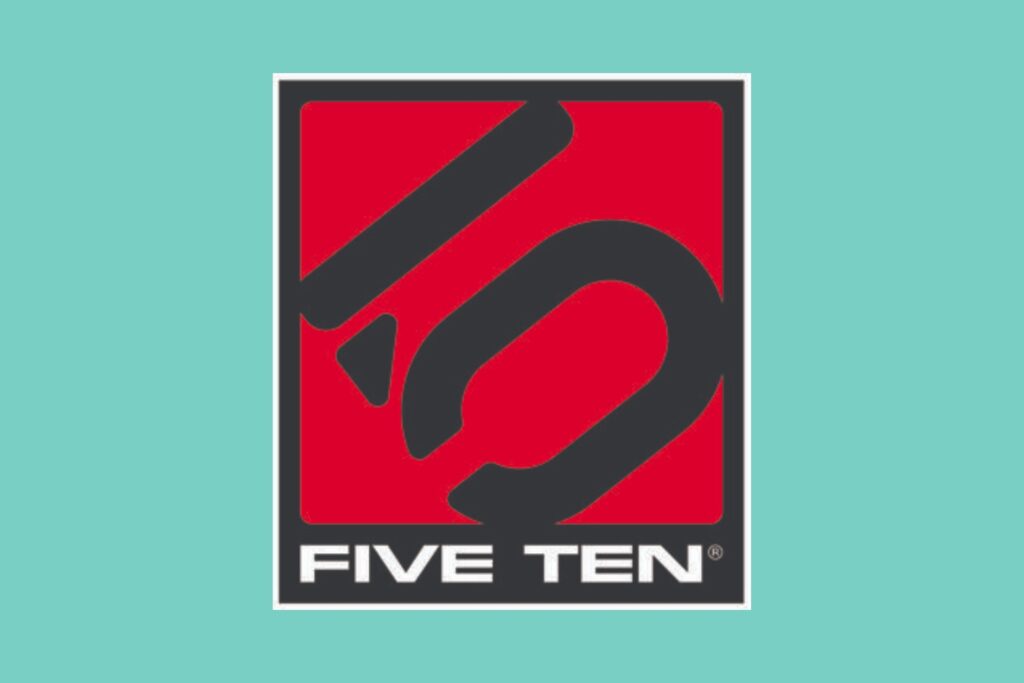
Like many climbing shoe brands, Five Ten was founded in 1985 by an accomplished rock climber, Charles Cole. In case that’s not obvious, the name comes from a grade of the Yosemite Decimal System: 5.10 (ah!).
Five Ten shoes like the Niad (entry-level), Hiangle (performance), and Anasazi Lace (trad) quickly became top-sellers worldwide with their unique sneaker-like design paired with sticky “Stealth” rubber, which is still very popular today.
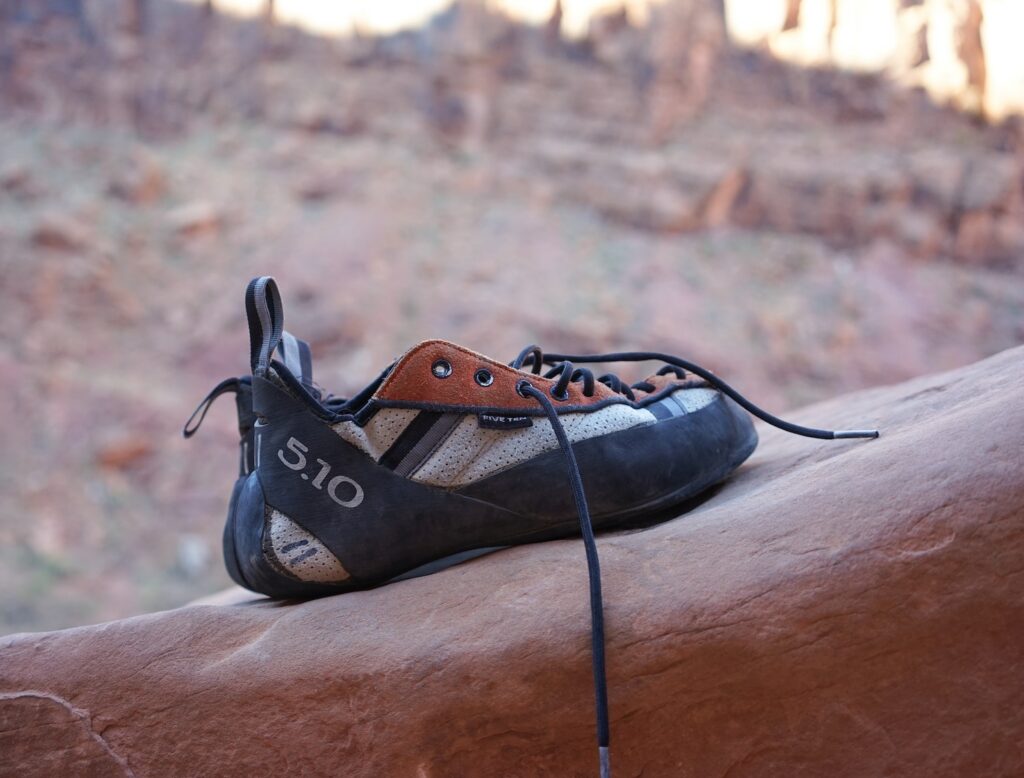
Adidas acquired Five Ten in 2011 for US$25 million to gain footing in climbing. Notably, it sponsors six-time world champion and first-ever female Olympic gold medalist in sport climbing, Janja Garnbret.
In terms of sustainability, working conditions, and animal welfare, Good On You rates Adidas as “It’s a start” (3 out 5). Adidas is famous for using recycled plastic in its products. However, the rating organization notes that Adidas “is not taking adequate steps to ensure payment of a living wage for its workers” and “has set a science-based target to reduce greenhouse gas emissions generated from its own operations and supply chain but it is not on track to meet its target” (12).
Also, Five Ten/Adidas still commonly uses animal materials. It does have a few vegan climbing shoe models.
Butora

Butora is a South Korean brand created in 2014 by Nam Hee Do, a climber with 20 years of experience as a shoe maker at the time of starting the company. In less than a decade, Butora has established itself as one of the most respected climbing shoe brands, embodying the meaning of their name: “persistence and determination.”
The Butora Endeavor is the ideal pick for beginners while the Acro Comp is top-notch for advanced climbers.
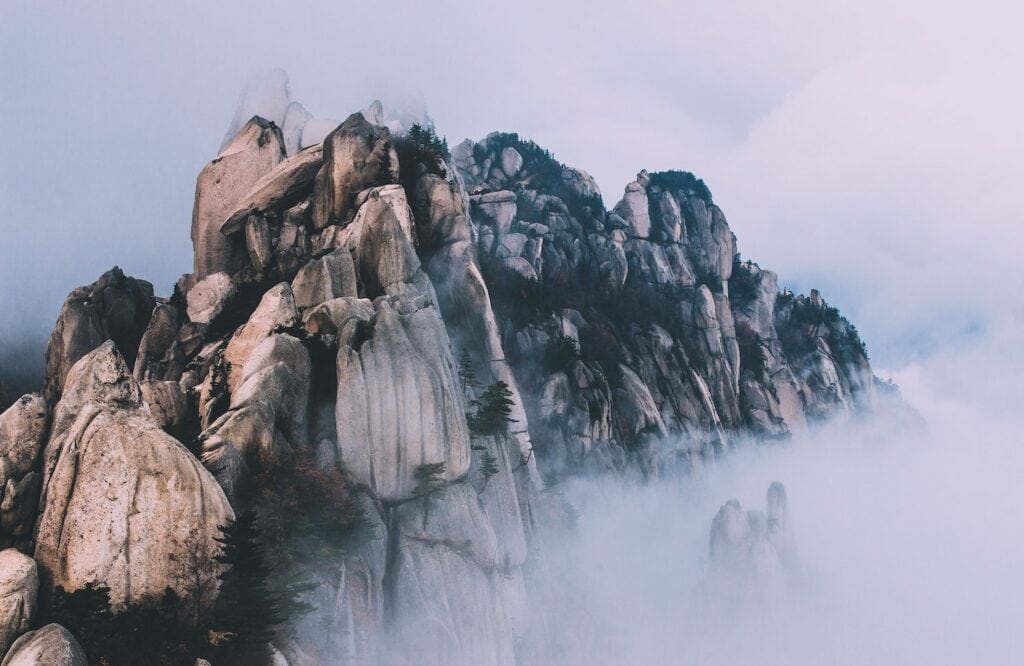
Butora owns the factory where it manufactures all its shoes. As a result, they control most of the processes to ensure the highest quality (13). They also manufacture a proprietary rubber, Neo Fuse, and claim they can eliminate waste by reusing and recycling all the rubber in their plant.
Unfortunately, while their USA branch claims that they do everything “as sustainably as possible”, we couldn’t find any hard data about their initiatives. Butora does use organic hemp (a sustainable material) in the lining of many of their shoes and encourage climbers to resole.
In terms of animal-cruelty, only two models in their collection are vegan (Brava and Senegi).
So iLL

Representing Southern Illinois, So iLL is a climbing brand for the cool kids with a very clean and minimal design founded by Dan and Hannah Chancellor. Its shoes are comfortable, beautiful to look at, and high-performance when they need to be like the Free Range Pro.
Boosted by their collaboration with actor and climber Jason Momoa (recently in the climbing headlines with Chris Sharma for their HBO show, The Climb (14)), So iLL is one of the rare brands to successfully bridge the gap between climbing and lifestyle. Their sleek apparel collection is ideal for climbers who are looking to wear discreet and tasteful clothes in their everyday life.
On the plus side, all their climbing shoes are vegan and manufactured in the United States—a truly unique proposition for climbers!
Regarding sustainability, the brand doesn’t provide much information about its initiatives. They did release a model of vegan sneakers in 2021 with 30% of BLOOM resin (15), a material made from algae, but there’s no clear overall policy on their long-term goals as a company.
Black Diamond

Born from the ashes of Yvon Chouinard (who would go on to found Patagonia)’s first venture, Black Diamond was created in 1989. Nowadays, it’s owned by the NASDAQ-listed public company Clarus and employs over 400 people. Along with La Sportiva, it’s one of the largest climbing companies on this list.
Interestingly, while the company is a leader in climbing equipment (e.g. ropes, carabiners, nuts & cams…etc.), it took them a while to enter the climbing shoe arena with the launch of the Momentum in 2017, followed by the Shadow, Aspect and Method.
The Momentum is famously one of the best beginner climbing shoes on the market and has the advantage of being vegan.
Black Diamond has made some efforts when it comes to sustainability (16). For example, they are using bluesign materials for their apparel materials, partially power their headquarters with a solar photovoltaic system and recycle a lot the components used during production. However, these efforts seem limited in the grand scheme of things. Also, as a public company, we can expect that their sustainability efforts will never be at the expense of their shareholders.
Other climbing shoes brands:
- Acopa
- Alpidex
- Andrea Boldrini
- Asakusa
- Climb X
- Cypher
- EB
- Garra
- Jurax
- kN Climbing
- Lavan
- Lowa
- Mad Rock
- Millet
- Red Chili
- Saltic
- Simond (Decathlon)
- Snake
- Teknia
- Triop
- Tuson Tolf
- Unparallel
- Wild Climb
Frequently Asked Questions (FAQs)
Yes, Scarpa is one of the leading climbing shoe brands in the world, with iconic models like the Drago. Although much more needs to be done, Scarpa is one of the better brands regarding sustainability. Also, it offers a few vegan climbing shoes.
It depends on the definition. The oldest company to produce climbing shoes nowadays is La Sportiva, founded in 1928. However, the first modern climbing shoes were created by PA in the 1950s, later acquired by EB, a French company that still exists today and notably sponsors Seb Bouin.
References
EB Historical (retrieved on 04/05/2023)
https://eb-climbing.com/historical-eb
Climbing Gears Market Size Hits $2.7 Billion by 2031
OpenPR, Allied Market Research (March 2023)
https://www.openpr.com/news/2979678/climbing-gears-market-size-hits-2-7-billion-by-2031-key-player
Amazon isn’t alone in reportedly destroying unsold goods. Nike, Burberry, H&M and others have also come under fire for torching their own products.
Aleeya Mayo, Business Insider (June 2021)
https://www.businessinsider.com/amazon-destroying-unsold-goods-report-other-nike-burberry-fashion-2021-6
La Sportiva Sustainability Report 2021 Edition (retrieved on 04/05/2023)
La Sportiva
https://lasportiva.com/media/docs/Bilancio2021_EN.pdf
The Green Manifesto: A Sustainable Approach, Which Has Always Been Part of Scarpa’s History, Now a Manifesto for the Company (retrieved on 04/05/2023)
Scarpa
https://us.scarpa.com/community/green-manifesto
Evolv (retrieved on 04/05/2023)
Oberalp Group
https://www.oberalp.com/en/our-mountain-brands/evolv
Contribute: Sustainability Report 2021 (retrieved on 04/05/2023)
Oberalp Group
https://www.oberalp.com/website_images/CSR/CSR_Reports%20Downloads/Oberalp%20Contribute%202021.pdf
Salewa (retrieved on 04/05/2023)
Good On You
https://directory.goodonyou.eco/brand/salewa
Sustainability (retrieved on 04/05/2023)
Tenaya
https://tenaya.net/en/sustainability
Ethical Statement (retrieved on 04/05/2023)
Ocun
https://www.ocun.com/docs/Ethical_statement_EN.pdf
Boreal’s 2023 Workbook (retrieved on 04/05/2023)
Boreal Outdoor
https://workbook.borealoutdoor.com/2023-2/catalogo-boreal-en/
Adidas (retrieved on 04/05/2023)
Good On You
https://directory.goodonyou.eco/brand/adidas
Butora: Interview of ButoraUSA’s Tyler McPherson (retrieved on 04/05/2023)
Common Climber
https://www.commonclimber.com/butora.html
Jason Momoa and Chris Sharma on Creating Reality Competition Show ‘The Climb’
Delaney Miller, Climbing Magazine (January 2023)
https://www.climbing.com/news/jason-momoa-and-chris-sharma-on-creating-reality-competition-show-the-climb/
Jason Momoa Is Saving the Planet — Or At Least He’s Trying
Nikara Johns, Footwear News (April 2021)
https://footwearnews.com/2021/business/sustainability/jason-momoa-sustainable-climbing-shoe-line-1203133059/
Sustainability: Mission Vision Values (retrieved on 04/05/2023)
Black Diamond Equipment
https://www.blackdiamondequipment.com/en_US/content/sustainability/
